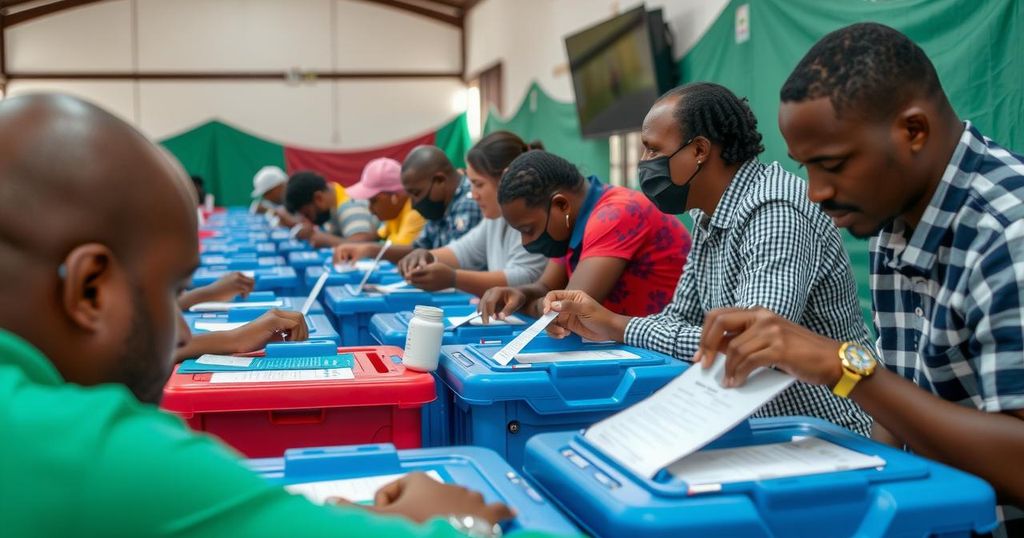Comoros Voters Engage in Parliamentary Elections Amidst Controversy

Voters in Comoros are electing a new 33-seat parliament amid claims of electoral irregularities linked to President Azali Assoumani’s prior re-election. Approximately 338,000 registered voters are participating, while some opposition parties call for a boycott and others push for engagement to expose the ruling party’s weaknesses. Results are expected by Friday.
Voters in Comoros cast their ballots today to elect members of the 33-seat parliament in the Indian Ocean archipelago. This electoral event follows President Azali Assoumani’s re-election last year, which opposition figures claim was tainted by numerous irregularities, a notion firmly refuted by representatives of the ruling party. With approximately 338,000 registered voters, polling stations opened early on Sunday, signifying an important moment for the political landscape of Comoros.
The last parliamentary elections were held in January 2020, and close to 100 candidates have been approved by the nation’s Supreme Court to contest in this current election cycle. Accusations of authoritarianism against President Assoumani have intensified, with many speculating that he is grooming his eldest son, Nour El-Fath, for succession upon the conclusion of his term in 2029. Since first seizing power in a coup in 1999, Assoumani has secured his position through three elections and has recently bestowed significant authority upon his son.
In light of these dynamics, some opposition factions, including the Juwa party led by former President Ahmed Abdallah Sambi—currently serving a life sentence—have advocated for a boycott of the elections. Conversely, other opposition members have rejected such calls, suggesting that participation may expose systemic flaws within Assoumani’s governance further. One candidate from the opposition, Hamidou Karihila of the Hope of the Comoros party, expressed this sentiment: “The Azali regime is weakened … by participating in these elections we are contributing to further exposing the flaws in its system and accelerating its inevitable fall.”
Results of the parliamentary elections are anticipated by Friday, and the developments in this electoral process could have significant ramifications for the future of governance in Comoros.
The political environment in Comoros has been complex, characterized by a history of coups and allegations of electoral misconduct. Since President Azali Assoumani came to power in 1999, he has faced opposition accusations regarding his authoritarian governance style. This parliamentary election is critical as it represents the will of the people amidst claims of political manipulation and power consolidation within the ruling party. The interplay between various opposition groups and the ruling administration will determine the direction of Comoros’ political future.
In summary, the elections in Comoros serve as a pivotal moment for the country’s political trajectory, reflecting the ongoing tensions between the ruling party and opposition factions. With substantial allegations surrounding the electoral process and looming concerns over authoritarianism, the outcome will be scrutinized closely for its implications on governance and civil liberties in Comoros. Participation in the elections signals a critical approach by opposition parties to challenge the incumbent regime, while the results will likely influence future political dynamics.
Original Source: www.moreechampion.com.au






